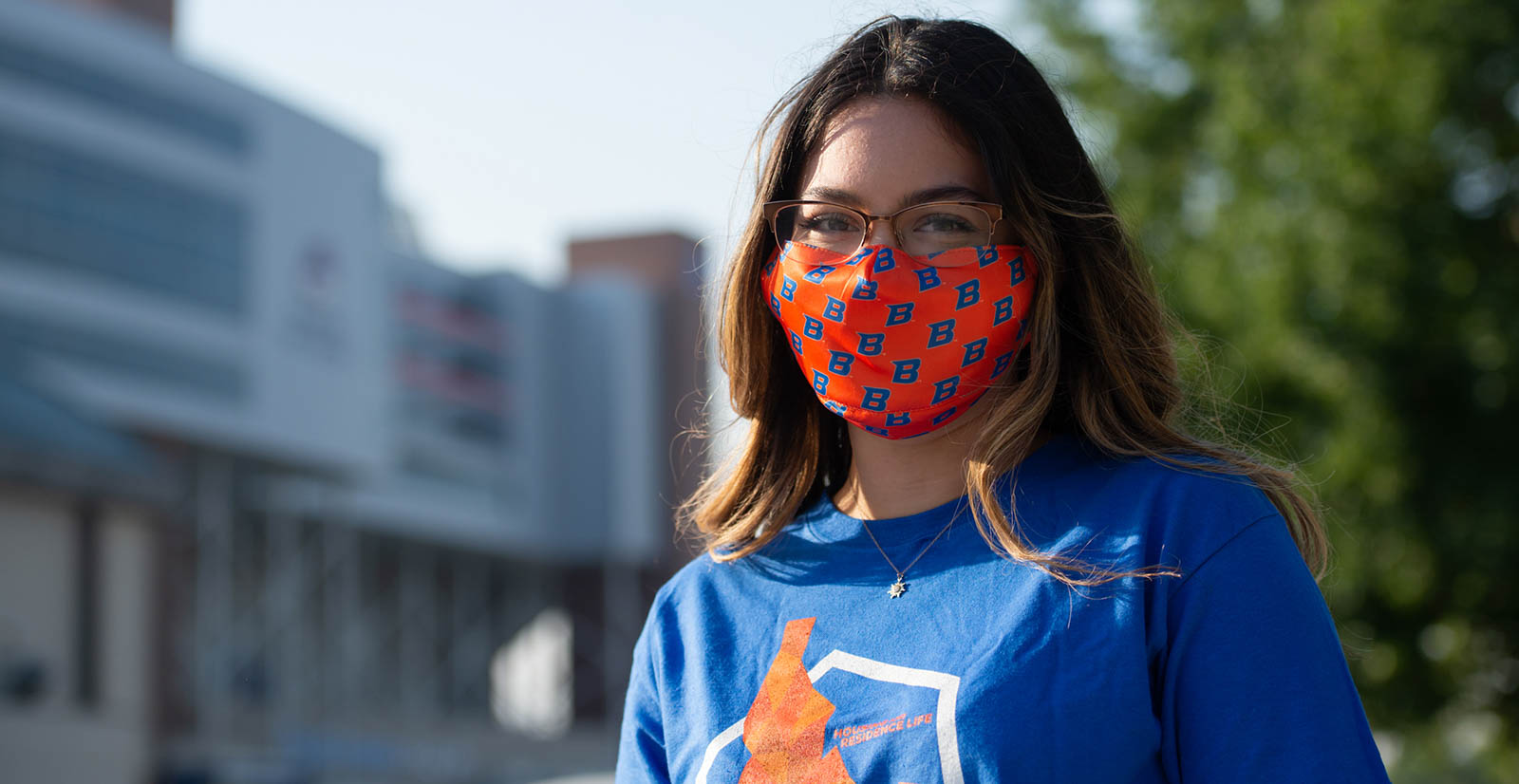
The reasons to live in Idaho are many — a strong community spirit, dizzyingly beautiful landscapes and a proud heritage of free thought. Nonetheless, the state faces profound challenges. According to Mental Health America, Idaho ranks 48th out of 50 states and Washington D.C. when it comes to providing access to mental health services. And Idaho, like other states in the Intermountain West, contends with some of the highest suicide rates in the country.
COVID-19 has only increased the challenges in Idaho and beyond. A recent study by the Centers for Disease Control and Prevention found that among young adults aged 18 to 24, one in four reported seriously considering suicide. An Active Minds survey in September found that 75% of students reported their mental health worsened during the pandemic.
The pandemic forced universities, including Boise State, to spend time and resources making campuses physically safer for students. Boise State succeeded on that front, keeping infection numbers level through the fall even as they grew across the state. But President Marlene Tromp recognized the other urgent need that, unattended, could have significant negative impacts on student success: addressing to students’ mental health with the same focus and intensity. Tromp created Project Launchpad, a multidimensional and wide-reaching strategy to support young people at this difficult time.
“As a nation, we have been attentive to investing in business and healthcare, both important areas for our wellbeing and future. We need to be just as deliberate about supporting our students. Not only are they valuable as individuals and as a collective, they, too, are critical to our future,” Dr. Tromp said.
President Marlene Tromp
On Dec. 1, Tromp hosted the inaugural Project Launchpad National Digital Summit. About 700 college and university presidents, chancellors, administrators, and mental health experts representing 275 institutions from across the country convened to begin a dialog and ask pointed questions: How can we as educational leaders better recognize the problems our students face? How can we weather the trauma of a world-wide pandemic and how can we work together to better serve our students?
“I believe that universities have a responsibility to utilize our research prowess and expertise to address the serious challenges young people face — to step up and serve our students in new and innovative ways that respond to the challenges they face with the loss of access to many of their mentors and internships, and a disrupted economy,” said Tromp, Boise State president. “Our young people are our future, and, as with the Apollo 13 mission, we must never give up, but commit to helping them in flight.”
In addition to the summit, Boise State’s Project Launchpad includes a task force of academic, student success and mental health leaders who will strategize with student groups, gather data and problem solve. Tromp is meeting with student groups and partnering with Gordon Jones, dean of the College of Innovation and Design, to co-teach a class called Leading and Learning During Uncertain Times. The course seeks new strategies to support students while working in partnership with them. It is engaging in quantitative and qualitative data collection through Boise State’s Office of Institutional Effectiveness.
“We will introduce students to the very complex work of higher education and learn from them about the broad ranging impacts of the pandemic, along with what’s working for them, what’s not, and how we can evolve to better serve,” said Tromp. Universities and colleges, she added, must share their research, their data, strategies and insights to advance the professional and personal well-being of their students. Toward that end, Boise State has created Rebuilding the Launchpad, a searchable open-source clearinghouse.
“Higher education has a three-part mission: to teach, research and serve,” Tromp said. “This is a moment when we are called with urgency to do all three for our students and our nation’s future. We must respond to that call.”
President Marlene Tromp